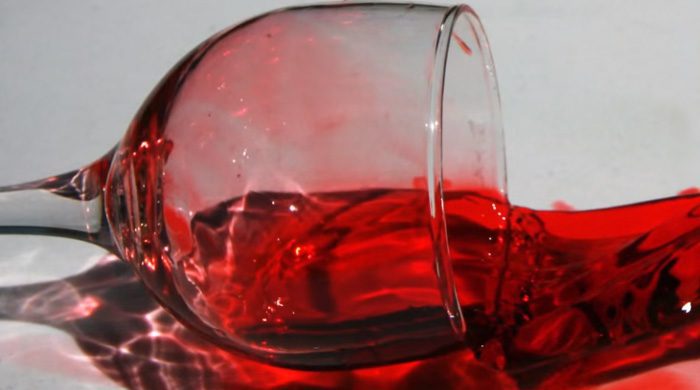Is Red Wine Good For You? The American Heart Association Says Don’t Drink It

Is Red Wine Good For You?
Proponents of red wine will point to studies that show some minimal benefits of drinking red wine in an attempt to justify the consumption of red wine. If red wine is good for you why does the American Heart Association (AHA) say on its website it “does not recommend drinking wine or any other form of alcohol to gain these potential benefits?”[1]
The potential benefits of moderate red wine consumption in preventing cardiovascular disease (CVD) include increasing high-density lipoprotein (HDL) cholesterol levels, decreasing platelet accumulation, antioxidant properties, and restoring endothelial function.
The American Heart Association doesn’t recommend drinking red wine to get these benefits, even though it would appear the consumption of red wine was good for you. The health organization recommended against the consumption of red wine because it contains alcohol and overall alcohol consumption is destructive.
The AHA indicated the best known effect of wine and alcohol consumption was a “small” increase in “good” HDL cholesterol. The AHA recommends exercise over red wine consumption to raise HDL and to support overall health. Vitamin B3 (niacin) in grains like spelt and kamut also raise HDL levels.
Red Wine And Resveratrol
Proponents of red wine have put a lot of attention on its resveratrol antioxidant as a selling point. Studies have shown resveratrol reduces blooding clotting by keeping platelets in the blood from sticking together. This action can reduce the risk of a heart attack or a stroke. Though red wine and its resveratrol antioxidant may possess this benefit, the AHA cited the use of aspirin as a better alternative to address blood clotting.
The studies on resveratrol where done with the isolated compound and did not address the effects the alcohol in red wine had on the body. You can gain the antioxidant properties in red wine without drinking alcohol by consuming red grapes and blueberries. These foods and others also contain resveratrol.
Red wine supporters have either misinterpreted and misrepresented the findings of this study[2] to equate the consumption of one glass of red wine with the benefits of exercising for one hour. Further studies have shown that using resveratrol supplement can actually undermine the benefits of exercise.[3]
The American Heart Association says there is “no scientific proof that drinking wine or any other alcoholic beverage can replace these conventional measures.”
Drinking alcohol can lead to impaired judgement and motor skills, an acidic body, high triglyceride levels, high blood pressure, stroke, and heart attack.
Is red wine good for you? No.
[2] Improvements in skeletal muscle strength and cardiac function induced by resveratrol during exercise training contribute to enhanced exercise performance in rats.
[3] Resveratrol Impairs Exercise Benefits






